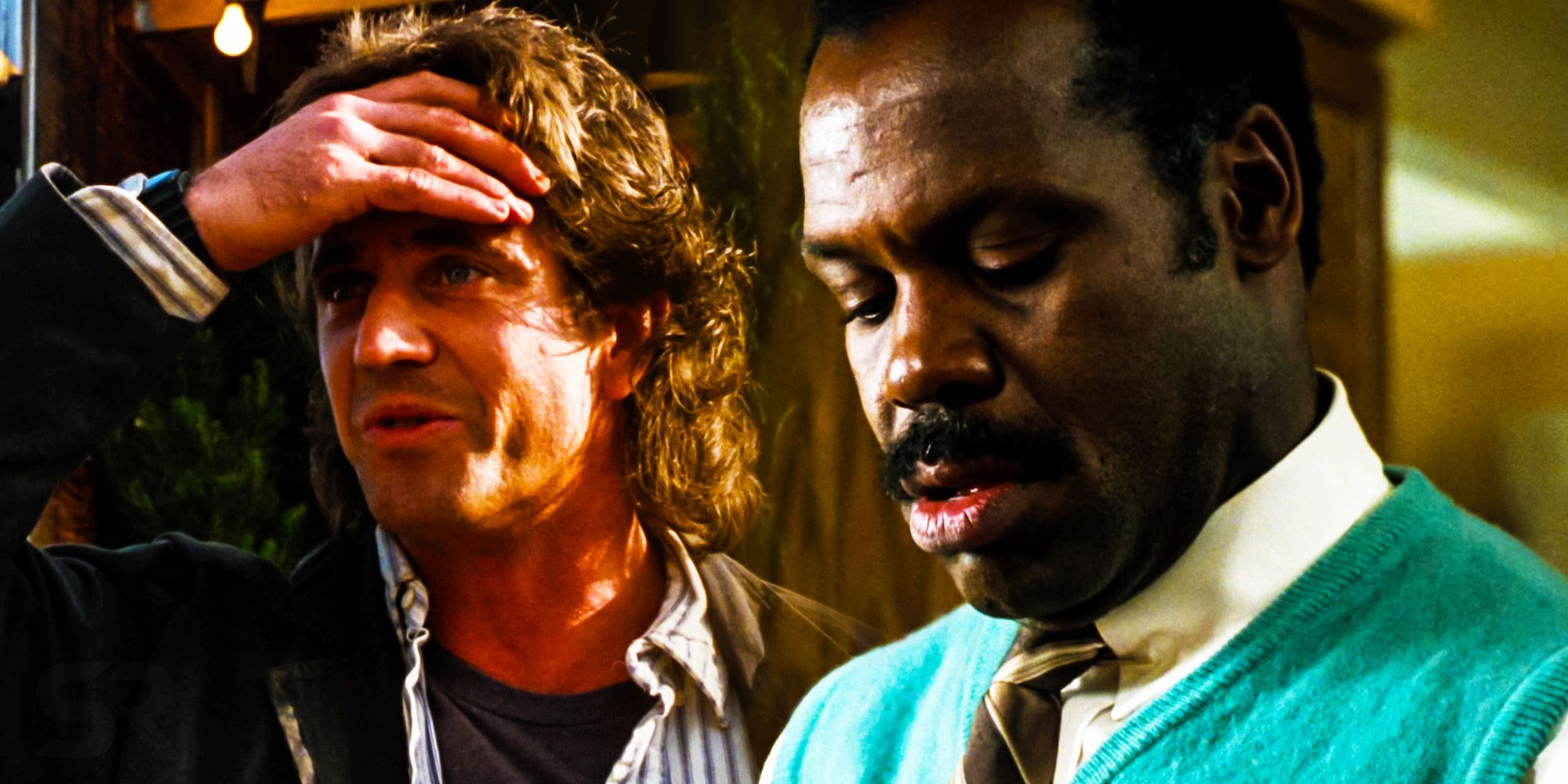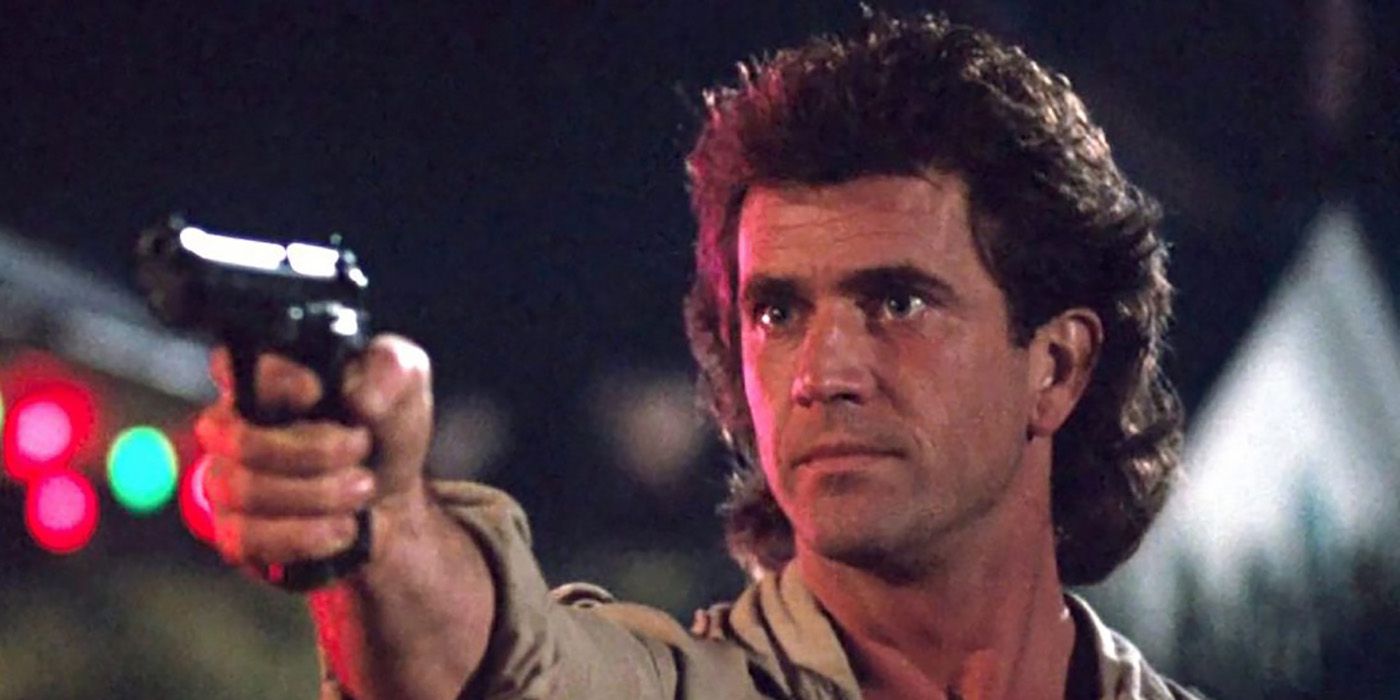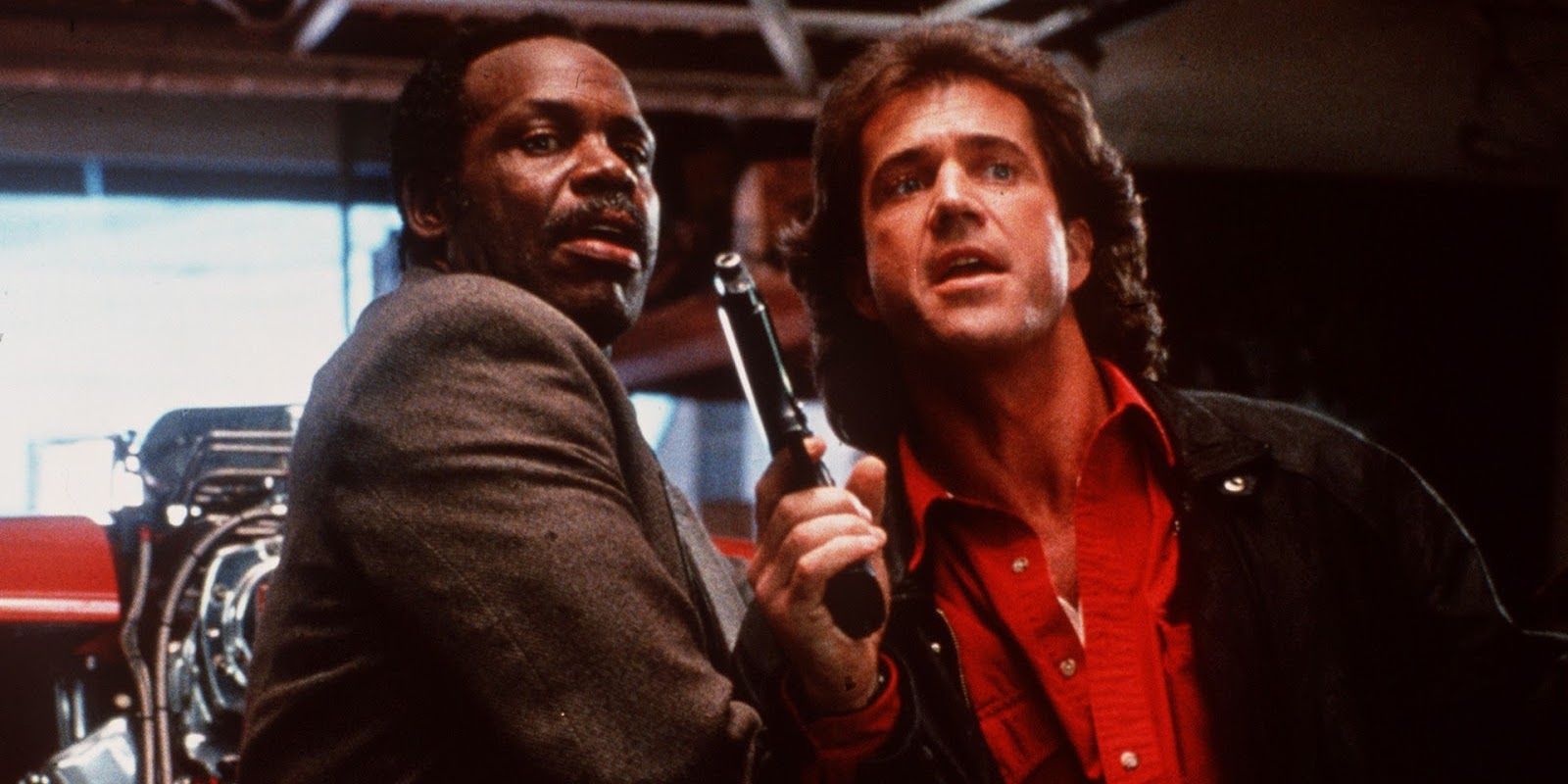Content Warning: this article contains discussions of suicide.
The first Lethal Weapon movie is actually much darker than its reputation (and sequels) would suggest. The film debut of screenwriter Shane Black (The Nice Guys, Iron Man 3), Lethal Weapon stars Danny Glover as the cynical Sergeant Roger Murtaugh and Mel Gibson as the definitive "loose cannon" cop, Sergeant Martin Riggs. Released in March 1987, Lethal Weapon became a smash hit, grossing $120 million dollars against a modest $15 million budget. With Lethal Weapon grossing eight times its production budget, a sequel was greenlit and released two years later in the summer of 1989. Lethal Weapon 2 became even more successful than the first.
This was in large part thanks to its more comic tone. While the first draft of Lethal Weapon 2 was written by Shane Black, it was ultimately rejected for its overly dark tone. Under the direction of new screenwriter Jeffrey Boam, the Lethal Weapon sequels became increasingly focused on comedy, especially with the introduction of Joe Pesci's character, Leo Getz. With the Lethal Weapon sequels increasing the levels of comedy in the franchise, it is easy to forget just how dark the original film actually was.
Riggs Wasn't A Fun Character Originally
While Riggs eventually became a truly wacky character in the sequels, with critics like Roger Ebert even referring to the character as a "clown", he has a much more somber presence in the first Lethal Weapon. The explanation for Riggs' erratic and dangerous behavior in Richard Donner's first Lethal Weapon is that his wife had recently passed just before the events of the movie. Riggs is so negatively affected by her death that he has picked out a specific bullet that he wishes to end his own life with.
Riggs' repeatedly reckless behavior stems from his depression. At one point he even asks a drug dealer who has him held at gunpoint to shoot him. Riggs has to also contend with practically every single coworker of his not believing that his mental health has been affected, as they all think he's faking it so that he can retire early. Once Riggs saves Murtaugh's life and the two begin bonding, the former tells the latter that he believes that the only thing he's ever been good at is killing people. Although Riggs became a more comedic character in the sequels, he is anything but in the first Lethal Weapon movie.
How Comedy Saved The Lethal Weapon Franchise
Although the first Lethal Weapon was surprisingly dark, a more comedic tone allowed the franchise to continue. Writer Shane Black's original plan for Lethal Weapon 2 included killing off Martin Riggs at the end of the film. This dark choice would have ended the franchise there, so the sequel taking a much lighter tone compared to the first Lethal Weapon allowed the series to continue. With four entries released, and a fifth currently in development, the Lethal Weapon franchise has become one of the most successful buddy cop series in Hollywood, even if the first movie was surprisingly dark.



